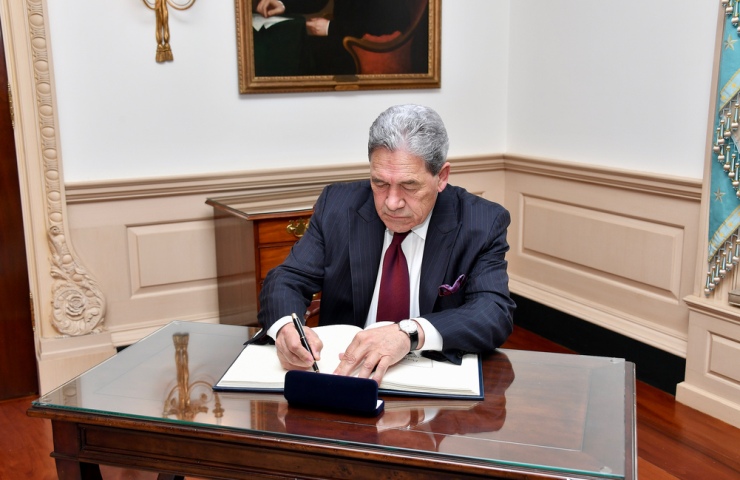NZ Expands Russia Sanctions, Targets Oil ‘Shadow Fleet’ and Global Enablers
New Zealand’s sanctions regime complements broader humanitarian, economic, and military assistance to Ukraine.

- Country:
- New Zealand
New Zealand has taken another significant step in its ongoing effort to hold Russia accountable for its invasion of Ukraine, announcing a sweeping new package of sanctions that target Russia's oil trade and those who help sustain it.
Foreign Minister Winston Peters made the announcement in Stockholm during a high-level meeting with the Nordic 5 Foreign Ministers — from Denmark, Finland, Iceland, Norway, and Sweden — underscoring the alignment between New Zealand and northern European nations in supporting Ukraine and defending international law.
Sanctions Target Russia's Oil 'Shadow Fleet'
In this latest, 33rd round of sanctions under the Russia Sanctions Act 2022, New Zealand has blacklisted 65 vessels linked to Russia's so-called shadow fleet — a network of ships that covertly transport Russian oil in violation of global restrictions.
"These ships form the backbone of a shadow operation that helps Russia skirt sanctions and keep its oil revenue flowing — revenue that directly funds its war of aggression against Ukraine," said Mr Peters.
The shadow fleet has been instrumental in moving Russian crude oil across global markets using deceptive practices such as disabling ship-tracking systems, conducting ship-to-ship transfers, and reflagging under third-country registries. New Zealand's sanctions are designed to disrupt these operations by prohibiting New Zealand entities from providing goods, services, or funds to these vessels.
Targeting Global Networks in Belarus, Iran, and North Korea
In addition to the vessel sanctions, the new measures also extend to individuals and entities based in Belarus, Iran, and North Korea. These actors have been identified as complicit in refining and transporting Russian oil, or in processing oil-related financial transactions that sustain Russia's economy.
"These actors are part of a broader network enabling the trade in Russian oil, undermining international efforts to choke off the Kremlin's war financing," Mr Peters explained. "By targeting the oil supply chain, New Zealand is acting decisively in support of global sanctions coordination and the shared objective of bringing Russia to the negotiating table."
Strengthening Global Unity Against Russian Aggression
The announcement in Stockholm was timed to reinforce collective diplomatic engagement with European partners who have also imposed robust restrictions on Russian energy exports. The Nordic 5 have played a leading role within the EU framework, and New Zealand's alignment with their policies reflects a commitment to a rules-based international order.
The sanctions reflect New Zealand's evolving foreign policy posture, balancing its geographic distance from the conflict with active participation in the global response. Since the Russia Sanctions Act came into effect in March 2022, the government has imposed restrictions on more than 1,900 individuals, entities, and vessels, alongside measures including travel bans, export controls, and financial prohibitions.
Continued Support for Ukraine
New Zealand's sanctions regime complements broader humanitarian, economic, and military assistance to Ukraine. The government has provided non-lethal military aid, training for Ukrainian forces, and financial support through NATO and international relief agencies.
Officials stress that sanctions are a long-term commitment — a vital diplomatic tool to apply sustained pressure on Russia and its backers. "Our message is clear," Mr Peters concluded. "New Zealand stands firmly with Ukraine and with all nations defending peace, sovereignty, and international law."
More information about New Zealand's sanctions, travel bans, and export controls can be found on the Ministry of Foreign Affairs and Trade (MFAT) website, which provides detailed updates on all listed individuals, entities, and vessels.









